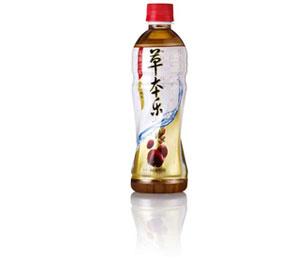
Rapid urbanisation in China has not only led to improved lifestyles but also sparked a trend of health consciousness; the Chinese are increasingly making food and beverage choices reflecting their concerns over health and nutrition.
As per Datamonitor s newly launched report, Product Insights: Soft Drinks in China, China ranked third globally, in terms of new product launches in the soft drinks market. In 2009, over 300 new soft drinks were launched in China and more than half of these were juices. Functional drinks, concentrates and bottled water were the other categories which had a high contribution to the overall new soft drink launches in the country. Datamonitor estimates that the Chinese soft drinks will grow by 14% (CAGR) during the next five years till 2014
With several food scandals surfacing in the recent years, the Chinese consumers have become more cautious of the food and beverage choices they make. Besides, the outbreak of epidemic diseases like Severe Acute Respiratory Syndrome (SARS), it has also compelled the Chinese authorities to encourage consumption of fruits and fruit based beverages among Chinese consumers to improve their overall immunity.
Saritha Pingali, Datamonitor Consumer Markets Analyst and author of the report: The immense growth in juices category during the year is attributable to a large extent to the growing health consciousness among consumers and the various government initiatives taken in the recent years to encourage juice drinking habit .
Besides the health trend, consumers choice is being influenced by growing presence of international brands like Danone, PepsiCo, and Coco-Cola in China. Nevertheless, the Chinese prefer their soft drinks in local flavours and those that contain traditional Chinese herbs like green tea, jujube, chrysanthemum, and lotus root. Indeed, several newly launched products that claimed to contain traditional Chinese herbs were positioned as either 'good for you' or 'better for you'.
Pingali added: This is influencing the global players in the country to customise and localise their flavours to suit the Chinese preferences. For instance, PepsiCo s current beverage offerings in China include Tropicana Guo Bin Fen juices and Cao Ben Le drinks, which are inspired by traditional Chinese medicine.
Although the market is dominated by large international soft drinks manufacturers such as Danone, PepsiCo, Coca Cola and Nestle, majority of the new soft drink launches in 2009 were contributed by the domestic players. It is expected that in order to expand their presence and gain acceptance in the untapped local markets of China, the global players would focus on intense localisation of their products.
Pingali concluded: Among all, the 100% fruit juice segment is expected to grow at the fastest rate over the forecast period. This indicates that health and nutrition will continue to influence the future of soft drinks market in China."
As per Datamonitor s newly launched report, Product Insights: Soft Drinks in China, China ranked third globally, in terms of new product launches in the soft drinks market. In 2009, over 300 new soft drinks were launched in China and more than half of these were juices. Functional drinks, concentrates and bottled water were the other categories which had a high contribution to the overall new soft drink launches in the country. Datamonitor estimates that the Chinese soft drinks will grow by 14% (CAGR) during the next five years till 2014
With several food scandals surfacing in the recent years, the Chinese consumers have become more cautious of the food and beverage choices they make. Besides, the outbreak of epidemic diseases like Severe Acute Respiratory Syndrome (SARS), it has also compelled the Chinese authorities to encourage consumption of fruits and fruit based beverages among Chinese consumers to improve their overall immunity.
Saritha Pingali, Datamonitor Consumer Markets Analyst and author of the report: The immense growth in juices category during the year is attributable to a large extent to the growing health consciousness among consumers and the various government initiatives taken in the recent years to encourage juice drinking habit .
Besides the health trend, consumers choice is being influenced by growing presence of international brands like Danone, PepsiCo, and Coco-Cola in China. Nevertheless, the Chinese prefer their soft drinks in local flavours and those that contain traditional Chinese herbs like green tea, jujube, chrysanthemum, and lotus root. Indeed, several newly launched products that claimed to contain traditional Chinese herbs were positioned as either 'good for you' or 'better for you'.
Pingali added: This is influencing the global players in the country to customise and localise their flavours to suit the Chinese preferences. For instance, PepsiCo s current beverage offerings in China include Tropicana Guo Bin Fen juices and Cao Ben Le drinks, which are inspired by traditional Chinese medicine.
Although the market is dominated by large international soft drinks manufacturers such as Danone, PepsiCo, Coca Cola and Nestle, majority of the new soft drink launches in 2009 were contributed by the domestic players. It is expected that in order to expand their presence and gain acceptance in the untapped local markets of China, the global players would focus on intense localisation of their products.
Pingali concluded: Among all, the 100% fruit juice segment is expected to grow at the fastest rate over the forecast period. This indicates that health and nutrition will continue to influence the future of soft drinks market in China."





